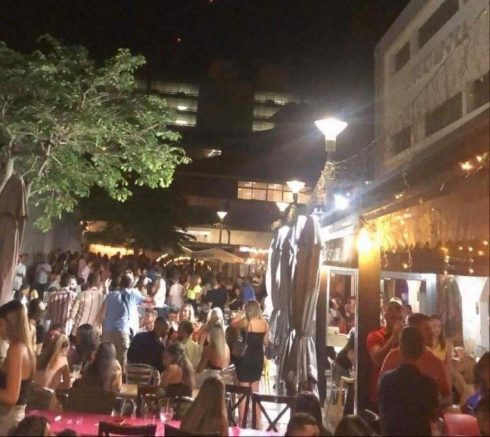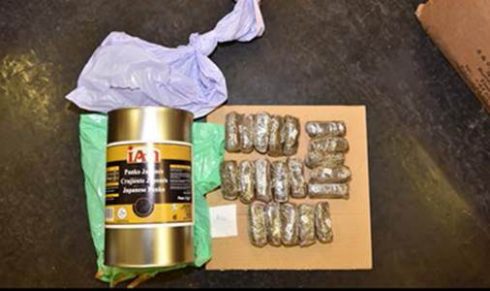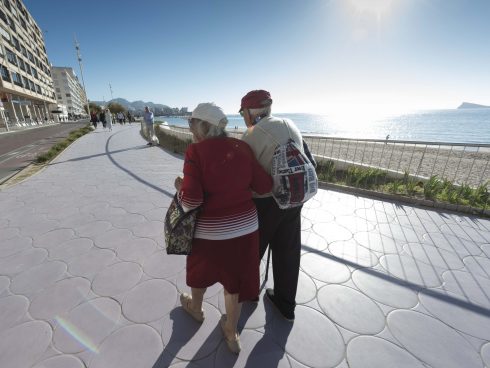After being back in Mallorca I had to pick up where I’d left off with the legal stuff after going back to the UK for lockdown.
My partner Paul and I had sorted out our NIE and social security numbers before leaving and used a Spanish lawyer for this, which cost €400 for both of us.Luckily having these probably made it easier for us to get back inthe country when we returned at the end of May. Although Paul has a Spanish work contract which is gold when it comes to any kind of bureaucracy in this country.
For me it’s a little more complicated to get residency because I have a business which is UK based. Therefore I had to have over €6,000 in a Spanish bank account and get private medical cover. After my experience ofopening a bank account here I’d definitely advise anyone who isn’t fluent in Spanish to use a lawyer to assistwith any legal stuff!

I’d gone along to my local Santander branch before lockdown and with the help of an English-speaking bank teller I’d managed to open an account. But when I returned to Mallorca to collect my bank card, my local branch was shut. I naively thought that I would be able to go in to a main branch in Palma, but oh no, as they repeatedly pointed out to me in Spanglish, I needed to go to my local branch. Which as I’ve already mentioned was closed.
Ok, so let’s have a go with telephone banking. I have learnt a very useful trick when it comes to automated messages, and that is, if you cannot understand what the options are in Spanish, simply hang on the line and eventually you will be put through to someone. I managed to ask if an agent spoke English and thankfully they did and discovered that my account had been blocked because I wasn’t able to transfer money into my account. Icouldn’t get on toonline banking because I’d forgotten my password!
Thinking it would be easy to transfer a lump sum, proved not so simple. Paul had advised me to get a Revolut card which some of you may use as it avoids having to pay the high exchange commission which banks charge. But I’m quite old school when it comes to a lot of things and I guess I trust old-fashioned banks where you can usually get to speak to a person. However, the exchange cost with my UK bank was going to be over £300, so time to join the financially savvy expats.
I pressed send on over €6,000 that was required for my residency application to go from my UK bank to my Spanish one. Now, usually when you transfer money it disappears from one account and appears in another account soon afterwards. But can anyone explain to me where your money goes for days when it leaves your bank account but fails to show up in another? For several days I was wildly Googling Revolut, because with it being an online bank there was no one I could physically speak to.
Of course by now I was convinced I’d been scammed and was blaming Paul for suggesting I use ‘a dodgy bank’. I tried asking my Spanish bank where my money had vanished, but they were clueless. Perhaps it was floating about in the ether along with those mystery single socks which never reappear!
After seven worrying days and another trip to my bank to provide evidence of my business back in the UK and to prove that I wasn’t laundering funds for some Cartel, my money finally landed in my Spanish bank account.
Finally, I had proof of funds and I’d taken out quite a reasonably priced healthcare plan with AXA, another requirement for my residency application.AXA offer several options, but I was told that as long as the policy covers hospital stays that would be sufficient, so don’t get bamboozled into taking out the most expensive option.
After having to wait several weeks for an available appointment at the Palma police station I met up with my English-speaking lawyer Natalie Turwood. She told me I was one of the first people to get the new residency cards.
The whole residency system is in the process of changing. So, for those of you who may be living in Spain without making it official it may be worth getting some professional advice, because as from 1 January 2021 UK people applying for residency will not be automatically entitled. Natalie said that the Spanish were making UK applications a priority to enable people to sort out their residencia before the new regulations are in force by 2021.
What this means is, if someone wants to come to Spain and work without being a resident then they will need to apply for a work visa, which can take up to three months and might not be granted. Also, for people like myself, instead of the €6000 required to prove you are financially self-sufficient this figure will rise significantly. So, for all of those Brits whose main Brexit concern was the immigration situation, perhaps they may now regret their decision? As it’s not just about them, what if their children, or grandchildren want to enjoy working in Spain as so many young people do each year?
This may not be as easy in the future, especially for bar and restaurant workers, as Spain will rightly prioritise their own people who don’t need a working visa. As for me, I have to wait up to forty days for my application to be accepted and then it will be another trip to the police station to have my fingerprints taken and provide a passport picture for the new style ID cards. I wouldbe so happy to be accepted as a resident in Spain as we’ve already decided that Mallorca is our forever home.
Follow me on Twitter @tereniataras
Click here to read more Spain News from The Olive Press.









Why waste loads of money on lawyers? They are just sharks who exploit foreigners and overcharge for very simple work. You can do it yourself for free. There’s plenty of advice online.